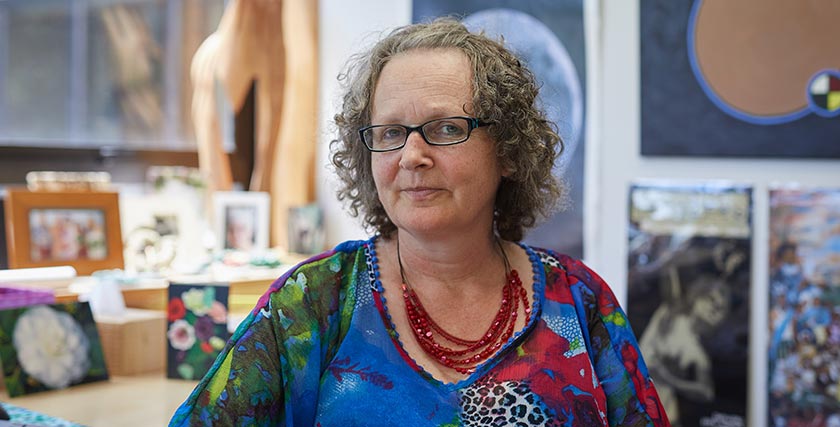
Came has been named Kāhui Hauora Tāmatanui Public Health Champion for 2021.
A contributor to Kai Tiaki Nursing New Zealand, and leader of equity workshops within NZNO, Came received the award from the Public Health Association of NZ. Last year’s recipient was epidemiologist Michael Baker.
Came began her career in health promotion in Taranaki in the 1990s, co-designing community sexual and mental health promotion programmes that challenged stigma and fostered connection.
In 1993, Came was appointed HIV/AIDS co-ordinator and sexuality educator at Taranaki Area Heath Board.
“I was interviewed by media on arrival and talked about gay rights. I didn’t know that you didn’t talk about gay rights in Taranaki, so it ended up on the front page of the newspaper.”
She said she started her public health career on the fringe, “because I didn’t realise that indeed my life as a bisexual feminist was on the margins”.
She told Kai Tiaki the award was about a body of work to which many people contributed, that many people had “shaped on the way”.
“People don’t win these [awards] out of nowhere. It comes from people having mentors, who open doors for them.”
Times had changed since she started back in the ’90s working with the rainbow community, she said.
Back then people could send vile hate letters, and sign them with their own name.
“You could write a letter of hate to a colleague [signed]… and there were no consequences.”
After a decade in Taranaki she worked with the Health Promotion Forum before leading a health promotion team in Waikato. Eventually she moved into Māori health and witnessed institutional racism, before making the transition to academic life.
Came is now head of the public health department at AUT’s School of Public Health and Interdisciplinary Studies, where she continues to publish on institutional racism, anti-racism, critical policy analysis, and the application of Te Tiriti o Waitangi; as well as delivering practical teaching and training.
She was still a little surprised at being recognised through the award in the mainstream of public health.
“Āe! How odd is that? I’ve always said if you’re not on the edge you’re taking up too much room. So I’m obviously in the wrong spot.”
Came said the importance of the Waitangi Tribunal inquiry into health services and outcomes, Wai 2575, could not be underestimated in helping highlight Māori health inequities.
“There were hundreds of Māori claimants telling their stories of racism.”
“There were hundreds of Māori claimants telling their stories of the racism within the health sector,” she said. Making change couldn’t be left to others, or to someone riding in on a white horse “to save the day”.
People needed to recognise their personal agency and power, Came said, even though inequity seemed to be too big a problem to solve.
“I don’t want to walk into a room of health practitioners, or academics, and they say ‘oh we can’t do anything’. Excuse me? You’ve got a PhD… [or] you’re a health practitioner, you’re powerful people, you can do things, you can change things.”


